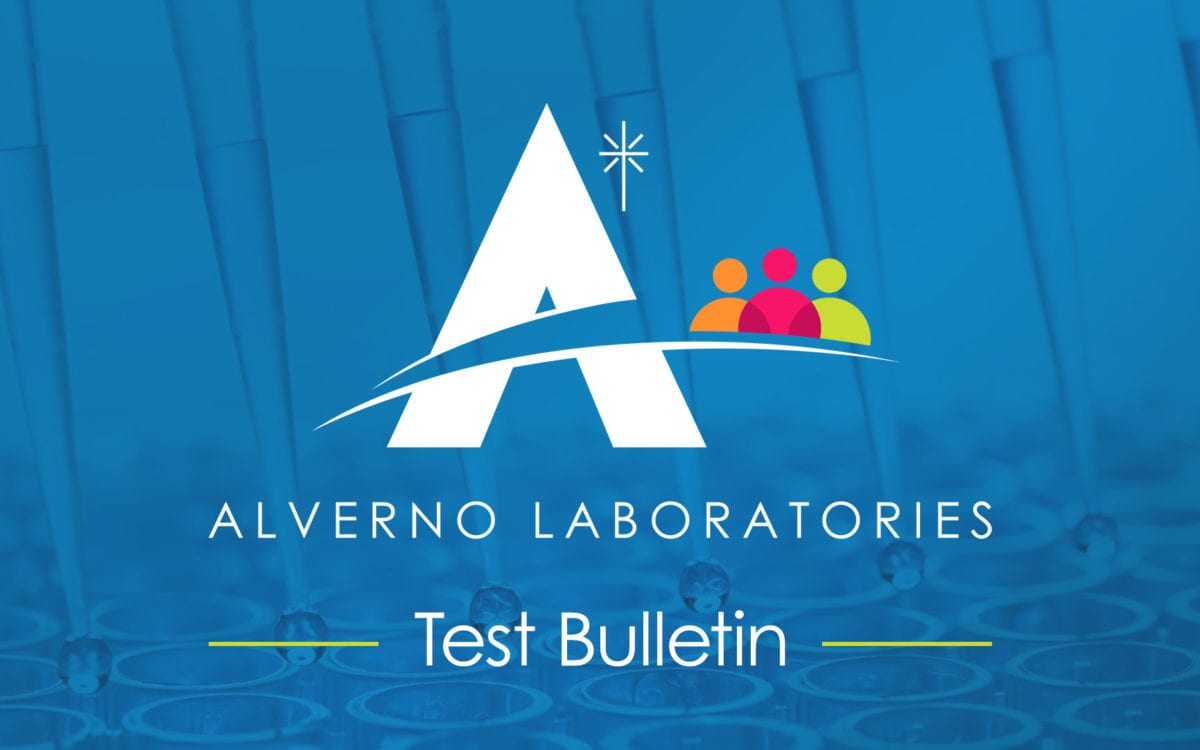Utilization Guides
Prostate Health Index (PHI)
September 4, 2019
To kick off Prostate Health month, Alverno Laboratories is pleased to announce that the prostate health index (phi) calculation in conjunction with the %free PSA to provide a more specific indicator for prostate cancer detection. The higher specificity of phi means greater probability of identifying those patients that need a biopsy, which could lead to a substantial decrease in the number of biopsies reported as negative for cancer. The phi calculation will provide a probability of cancer by combining values for PSA, free PSA, and p2PSA via a mathematical algorithm into a single score. Studies show that the detection of p2PSA in men with cancer and PSA values between 4.0 ng/mL and 10.0 ng/mL, improved the specificity of cancer detection relative to %free PSA alone.1 The phi score has been listed in the 2018 National Comprehensive Cancer Network’s Guidelines for Early detection of Prostate Cancer. Please review the prostate health index reporting values and specimen requirements below.

Specimen Requirements
Specimen: 2.0mL of serum
Stability: Refrigerated 2-8°C 7 days
Availability: On demand
SOFT codes: PHIR
Biotin Interference
How it affects our current assays
What is Biotin?
Biotin is a vitamin supplement that has been used to treat biotin deficiency associated with pregnancy, long-term tube feeding, malnutrition, and rapid weight loss, and has now made its way into world of beauty trends. The supplement is offered in large doses over the counter, and is promoted to improve hair, skin, and nails. However, consuming biotin supplements in large doses have been found to cause interference with immunoassay tests that utilize the biotin-streptavidin method and can lead to falsely high or falsely low results.
Which assays are affected?
Beckman Coulter has performed an internal investigation to determine which of its Access Family of Immunoassays are affected by this new trend of biotin use. Alverno Laboratories offers five assays found to be susceptible to biotin interference. Interference occurred in samples that contained a range from 3 to 600 ng/mL of biotin. The FDA has stated that specimens collected from patients taking high levels of biotin may contain more than 100ng/mL of biotin. Concentrations of biotin up to 1200 ng/mL may be present in specimens collected from patients taking up to 300 mg per day.

How is Alverno handling Biotin interference?
Alverno Laboratories provides clinicians with a report comment for each of the assays affected by biotin interference.
FDA recommendations to health care providers
- Talk to your patients about any biotin supplements they may be taking, including those marketed for hair,
skin and nail growth. - Be aware that many lab tests, including but not limited to cardiovascular diagnostic tests and hormone
tests, that use biotin technology are potentially affected, and incorrect test results may be generated if
there is biotin in the patient’s specimen. - Communicate to the lab conducting the testing if your patient is taking biotin.
- If the lab test result does not match the clinical presentation of your patient, consider biotin interference
as a possible source of error. - Know that biotin is found in multivitamins, including prenatal multivitamins, biotin supplements, and
dietary supplements for hair, skin and nail growth in levels that may interfere with lab tests. - Report to the lab test manufacturer and the FDA if you become aware of a patient experiencing an
adverse event following potentially incorrect laboratory test results due to biotin interference.
1. Mikolajczyk SD, Catalona WJ, Evans CL, et al. Proenzyme forms of prostate specific antigen in serum improve the detection of prostate
cancer. Clin Chem 2004; 50(6): 1017-1025.

